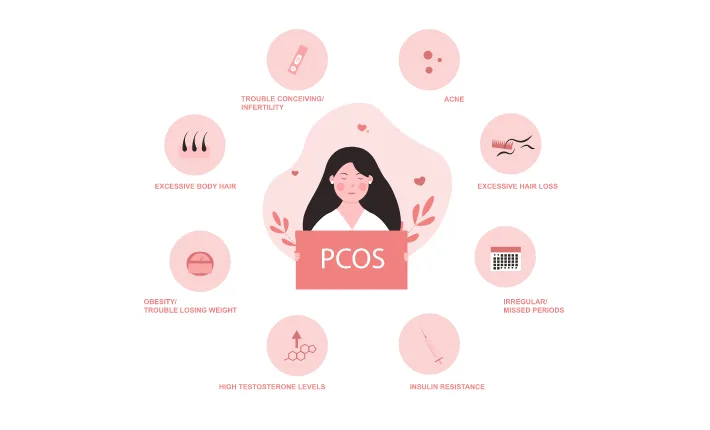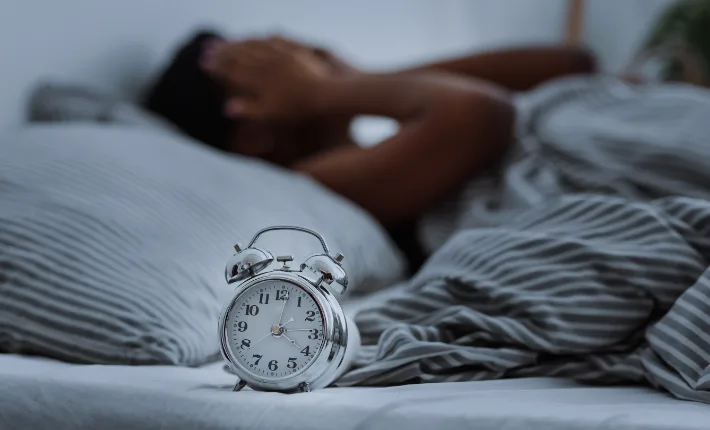Why Are My Periods Late? Causes and Reasons for Delayed Menstruation

It is extremely normal for a woman’s periods to be late every now and then. This delay can be a day or two. However, if the delay happens to be significant, then it could suggest a cause for concern. If your periods have been delayed beyond four days, then you might need to have it addressed. Normally, periods begin within 35 to 38 days after your last period. If the delay lasts longer than that, then you may have a problem on your hands. Meanwhile, if you have not had your period for six weeks, then that means you have officially missed your period.
To avoid embarrassing situations, make sure to keep a pad of Always Ultra Thin Pads with you at all times. Its absorbent core will keep you comfortable, and its flexible wings will smooth the creases on your brow by keeping the pad in place.
Apart from pregnancy, there are an array of reasons why you could miss your periods. Read this article if you want to know about learn what is the maximum delay to expect in periods if you’re not pregnant’ and answers to questions like, ‘Why is my period late?’


Stress

Stress is known to affect so many areas of your life - both mentally and physically
Stress is known to affect so many areas of your life - both mentally and physically. Being under stress can also affect your hormones and the part of your brain that helps regulate your menstrual cycle. This results in irregular periods or late periods.


Fluctuations in body weight
If you've begun a new diet fad without proper consultation with a dietician, this new diet may be the culprit and the reason why you have a delayed period. In addition, women who have eating disorders such as bulimia or anorexia too may have irregularities in their menstrual cycle.


Medical condition
Most women who have PCOS would have experienced delayed periods due to an imbalance of hormones. Other medical conditions such as obesity are also known causes of late periods.


Illness
If someone is going through or has experienced any illness or chronic disease, then that too is a reason why you may have had a late period. Diabetes is one of the most common conditions that plays a huge role in affecting the functioning of your menstrual cycle.


Excessive exercising
Regular exercise is healthy and can also help you regulate your menstrual cycle. However, if you've taken your workout a notch higher and have begun some strenuous exercises, then it is bound to affect your menstrual cycle. You are burning a lot of calories, and this dip in calories means there isn't enough energy in your body for daily functioning, leading to delayed periods.


Change in sleep schedule

A change in schedule thwarts your body clock and can cause either an early or late period
A drastic change in your daily schedule that impacts your routine sleep cycle may be the reason for your late period. A change in schedule thwarts your body clock and can cause either an early or late period. This is also applicable when you experience jet lag.
While these are some of the most common causes of a delayed period, it is not an exhaustive list. Your menstrual cycle is extremely sensitive and many other minute factors could cause irregularities. It's okay if you have a late period every now and then. However, if you notice anything unusual such as fever, extreme pain, or heavy bleeding lasting more than seven days or so, do consult your doctor.
Read more about period symptoms, causes of irregular periods and what causes period pains.
Wondering why your period stopped then started again? Our guide explains common reasons for this cycle pattern and how to manage it.
Hormones
Hormones play a significant role when it comes to regulating menstrual cycles. An imbalance in hormones can cause delays. If you ever catch yourself wondering, ‘Why is my period late?’, then one of the reasons could potentially be hormonal fluctuations. Factors such as stress, weight changes, strenuous exercise or conditions like polycystic ovary syndrome can affect your hormonal levels, causing irregular periods. Pregnancy is a common reason for periods being delayed; these shifts might be to blame. If you make it a point to understand these factors, you can help address the concerns surrounding maximum delay in periods if not pregnant, highlighting the important of maintaining hormonal balance.
Understanding these factors can help address concerns surrounding the maximum delay in periods if not pregnant, highlighting the importance of maintaining hormonal balance.
Birth control
Birth control plays a crucial role when it comes to impacting your periods and causing unexpected delays. If you have started using birth control or even if you stopped using it, it can affect your menstrual cycles. Birth control methods such as implants, IUDs and pills can cause you to have delayed or irregular periods. If you have ever wondered, ‘What causes periods to delay? you must take the birth control you are using into consideration. Even switching birth control can cause period fluctuations as the body is forced to adjust to changing hormonal levels. Even if you are not pregnant, these hormonal adjustments may account for a maximum delay in periods if not pregnant, emphasising the need to monitor changes.
Diet changes
Significant diet changes can affect your menstrual cycle and cause delays or missed periods. If you have ever caught yourself pondering, “Why are my periods late? then take into consideration any changes in your diet. If you strictly consume fewer calories or exercise way more compared to the calories you consume, then it can cause the reproductive hormones to stop, while weight gain can cause oestrogen to rise. These can affect your periods. For those wondering what causes periods to delay, it is important to understand that calorie intake plays a crucial role. Dietary changes can cause weight fluctuations, which can impact menstrual health. Maintaining a balanced diet may help your hormones stabilise and, in turn, regulate your menstrual cycle.
Menopause
If you are forced to ask yourself, ‘Why is my period late?’, the reason could be the period before menopause called perimenopause. If you miss your periods in your 30s or 40s, it could be that you are experiencing the stage before menopause. During this stage, hormone levels can fluctuate and cause you to have delayed or missed periods. This can lead to a maximum delay in periods if you are not pregnant. This reflects the body's gradual shift towards menopause.
How Late Is Too Late for a Period? - When to consider a missed period abnormal
If you are worried about when a late period becomes a problem, then it entirely depends on an individual's cycle. A late period can be late by 5 days to a maximum of a couple of months. A prolonged delay could be a sign of amenorrhea or a lack of menstruation. If the delayed period is not because of pregnancy, then you must see a gynaecologist at once. If you are regularly asking yourself, “Why is my period late?’, then you must see a doctor and have yourself evaluated. Because a maximum delay in periods if not pregnant, extending beyond one cycle, may indicate an underlying issue such as hormonal imbalances or stress.
Disclaimer
Please note the date of last review or update on all articles. No content on this site, regardless of date, should ever be used as a substitute for direct medical advice, diagnosis or treatment from your doctor or other qualified clinician. Always is committed to ensuring that all of our products meet rigorous safety standards; Always pads prioritize safety, protection and comfort of its consumers.









